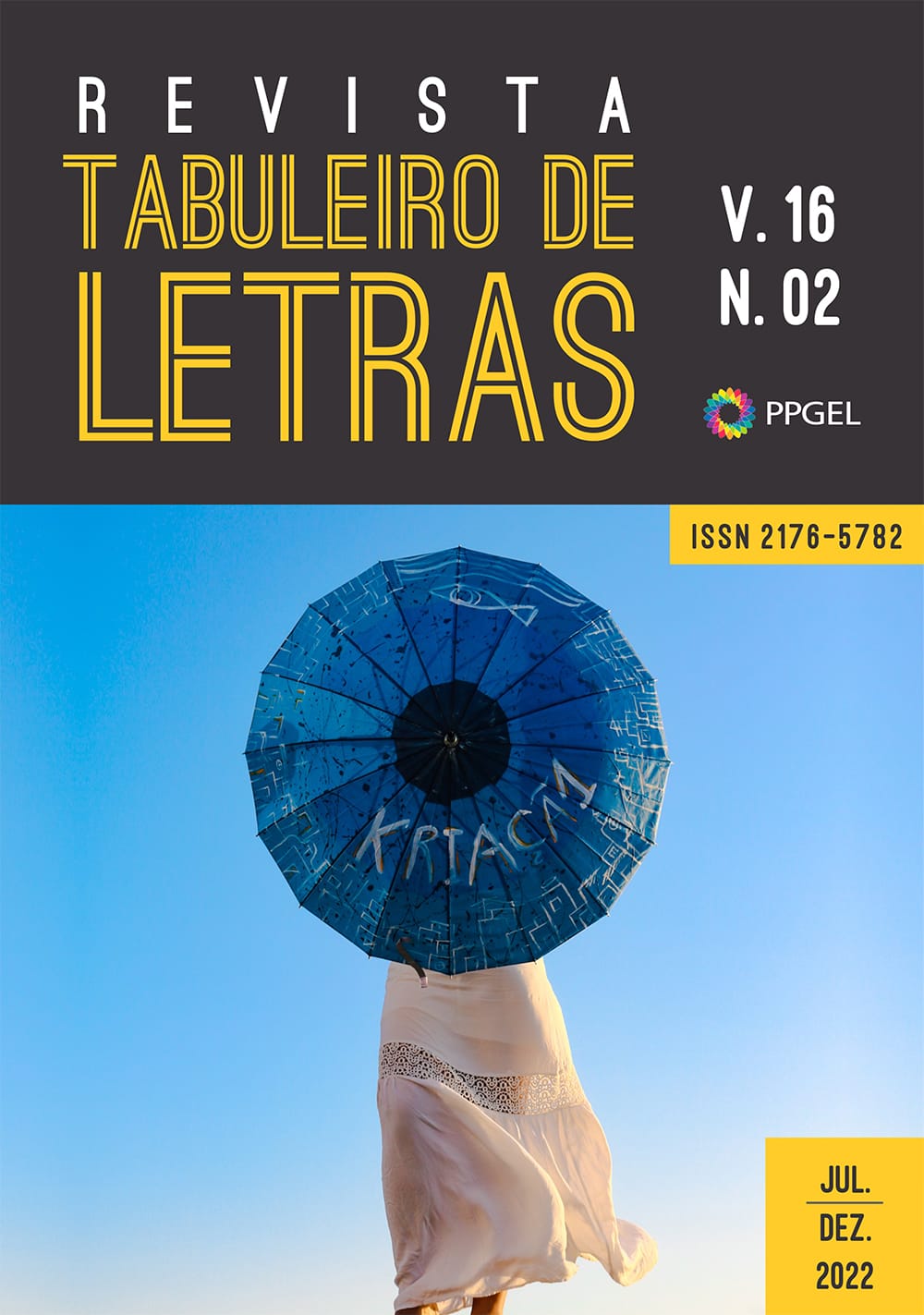Sentimentos de insegurança na personagem Lenu, em A amiga genial, de Elena Ferrante:
uma abordagem sociocognitiva
DOI:
https://doi.org/10.35499/tl.v16i2.15308Abstract
This study is located in the field of Textual Linguistics (TL), assuming a sociocognitivist approach, according to the theoretical principles of critical discourse studies by van Dijk (2012, 2016), which involve the relationship between language, discourse, context and cognition. The proposal aims to analyze scenes that show possible feelings of insecurity, presented by the character Lenu, in different moments of the literary narrative: A genial friend, by Elena Ferrante, based on the theory of context models. For this purpose, the category ‘The I-myself’ and its subcategories are used: a) the social role of subjects; and b) the relationships between the participants; and still, the category: ‘communicative actions/events or of another nature’. Methodologically, the study takes a qualitative approach, carried out through exploratory and bibliographic research. For the exploration of the phenomenon, the selection of twelve excerpts that constituted the corpus of analysis was carried out. It is concluded that Lenu’s insecurity identified from the context models, articulating the childhood and adolescence phase, constitutes a continuous and recurring characteristic in the character’s life.
Downloads
References
DANTAS, Tatianne Santos; MOSCHEN, Simone Zanon. Escrita, vestígio e ausência em A amiga genial de Elena Ferrante. Revista Subjetividades, Fortaleza, v. 19, n. 2, p. 01-14, 2019.
DIJK, Teun A. van. Discurso e poder. Organização: Judith Hoffnagel e Karina Falcone. 2. ed. São Paulo: Contexto, 2010.
DIJK, Teun A. van. Discurso e contexto: uma abordagem sociocognitivista. Tradução Rodolfo Ilari. São Paulo: Contexto, 2012.
DIJK, Teun A. van. Discurso-cognição-sociedade: estado atual e perspectivas da abordagem sociocognitiva do discurso. Tradução Pedro Theobald. Letrônica, Porto Alegre, v. 9, n. esp. (supl.), p. 08-29, nov., 2016.
FAUCONNIER, Gilles. Créativité, simulation, and conceptualization. Behavorial and Brain Sciences, v. 22, n. 4, p. 615-615, 1999.
FERRANTE, Elena. A amiga genial: infância, adolescência, vol. 1. Tradução Maurício Santana Dias. São Paulo: Biblioteca Azul, 2015.
FERRANTE, Elena. História do novo sobrenome: juventude, vol. 2. Tradução Maurício Santana Dias. São Paulo: Biblioteca Azul, 2016a.
FERRANTE, Elena. História de quem foge e de quem fica: tempo intermediário, vol. 3. Tradução Maurício Santana Dias. São Paulo: Biblioteca Azul, 2016b.
FERRANTE, Elena. História da menina perdida: maturidade-velhice, vol. 4. Tradução Maurício Santana Dias. São Paulo: Biblioteca Azul, 2017.
FERREIRA, Milena Vargas dos Santos. Olhar-se no espelho: o ethos narrativo em A amiga genial, de Elena Ferrante. In: CONGRESSO INTERNACIONAL DA ABRALIC DE 2018: CIRCULAÇÃO, TRAMAS E SENTIDOS NA LITERATURA. Anais... p. 1402-1409, 2018.
KOCH, Ingedore Grünfeld Villaça; MORATO, Edwiges Maria; BENTES, Anna Christina. Ainda o contexto: algumas considerações sobre as relações entre contexto, cognição e práticas sociais na obra de Teun van Dijk. ALED (Revista Latino-americana de Estudos do Discurso), Brasil; Chile, vol. 11, n,1, p. 79-91, 2011.
KOCH, Ingedore Grünfeld Villaça. A inter-ação pela linguagem. 11. ed. São Paulo: Contexto, 2012.
SECCHES, Fabiane Vertemati do Amaral. Uma longa experiência de ausência: a ambivalência em A amiga genial, de Elena Ferrante. 2019. 158 f. Dissertação (Mestrado em Teoria Literária) – Faculdade de Filosofia, Letras e Ciências Humanas. Universidade de São Paulo, São Paulo, 2019.
Downloads
Published
How to Cite
Issue
Section
License
Autor(es) conservam os direitos de autor e concedem à Revista o direito de primeira publicação, com o trabalho simultaneamente licenciado sob a Licença Creative Commons Attribution que permite a partilha do trabalho com reconhecimento da autoria e publicação inicial nesta Revista.

















